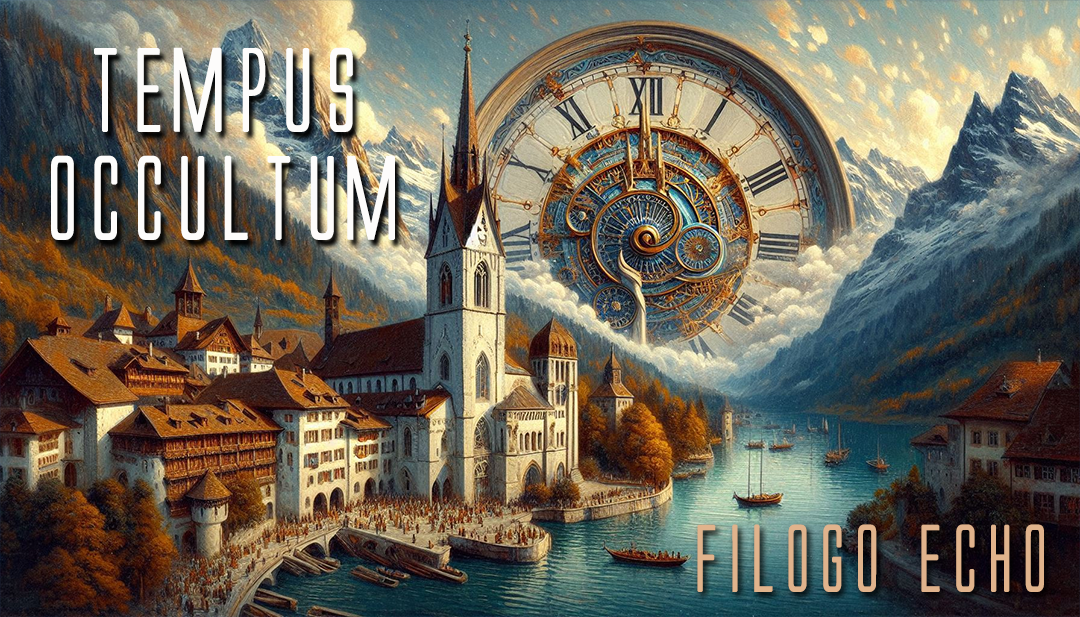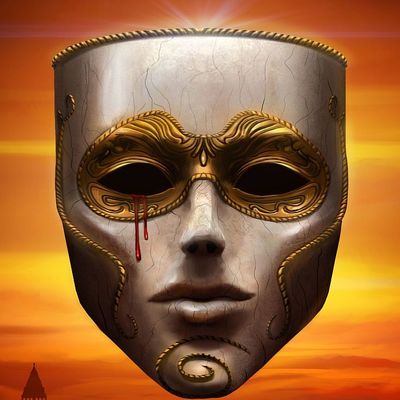
Chapter Four: Defectus Eclipsus VI
We had reached the church now, joining the other brothers filing in for vespers. Throughout the familiar ritual of prayers and responses, my mind raced with all I had learned and all that remained mysterious. The astronomical discrepancies, the hidden manuscripts, Visconti's veiled threats, Brother Clemens's promise of further revelations—all swirled together in a maelstrom of questions and half-formed theories.
After vespers came supper, eaten in monastic silence broken only by the voice of the reader, reciting from the Lives of the Saints. Then recreation, when the brothers were permitted an hour of conversation or private pursuits before compline.
I used this time to visit the scriptorium, hoping to continue my examination of the Reichenau documents. But when I arrived, I found Doctor Visconti already there, engaged in what appeared to be a thorough search of the very manuscripts I had been studying.
"Brother Lukas," he said, not looking up from his work. "Come to continue your research?"
"Yes," I replied, moving to my usual place at the large oak table. "Though I would not want to disturb your own investigations."
"Not at all. Perhaps we can assist each other. You are familiar with these documents, after all."
For the next hour, we engaged in a strange dance of scholarly collaboration and mutual surveillance. Visconti questioned me about the Reichenau collection, particularly documents referring to astronomical events or dating systems. I answered truthfully but without revealing my suspicions about the phantom centuries.
When the bell rang for compline, Visconti gathered his notes and rose. "A productive evening, Brother Lukas. We must continue this collaboration tomorrow."
"I look forward to it," I lied, relieved that the tense encounter was ending.
As we walked toward the church, Visconti casually mentioned, "I will be meeting with Brother Clemens tomorrow morning. His astronomical expertise may help shed light on some references in the newly discovered manuscripts."
My stomach tightened with anxiety. Was this a coincidence, or had Visconti somehow learned of my conversations with Clemens? Was the old astronomer now in danger?
I attended compline with distracted mind, watching the clock and planning my meeting with Brother Clemens by the old well. As soon as the final prayer was said, I slipped away, avoiding the brothers processing toward the dormitory.
The eastern courtyard was dark, illuminated only by starlight and a sliver of moon. The old well stood at its center, a circular stone structure capped with a wooden roof. I approached cautiously, alert for any sign of surveillance.
"Brother Clemens?" I called softly, peering into the shadows.
No answer came. I circled the well, thinking perhaps he was waiting on the other side. Nothing.
For nearly an hour, I waited, growing increasingly concerned. Brother Clemens had been insistent about meeting tonight. What could have prevented him from coming?
Finally, accepting that he would not appear, I made my way back toward the dormitory, taking a circuitous route to avoid being seen by any late-wandering brothers. As I passed the infirmary, a flurry of activity caught my attention. Brothers hurrying in and out, the flicker of lamps, the murmur of concerned voices.
I approached one of the novices standing outside. "What has happened?"
"Brother Clemens," he replied, his young face pale with shock. "He was found unconscious in his observatory. They say he has suffered some kind of seizure."
Cold fear gripped me. Brother Clemens, the only ally who truly understood what we were uncovering, was now incapacitated. And I could not help but suspect that his "seizure" was no natural occurrence.
"May I see him?" I asked.
The novice shook his head. "Father Abbot has forbidden visitors for now. Only Brother Matthias, the infirmarian, is permitted to attend him."
I nodded, my mind racing with implications. Brother Clemens had promised revelations tonight—information he considered too dangerous to share within the abbey's walls. Now he lay unconscious, unable to speak, while Doctor Visconti planned to "meet" with him tomorrow morning.
The timing could not be coincidental. Visconti—or whoever he represented—had moved to silence Brother Clemens before he could share what he knew with me.
I made my way to my cell, my steps heavy with dread and determination. If Brother Clemens had been attacked for what he knew, then I too was in danger. And yet, I could not abandon our search for truth now, not when we had come so close to unraveling the mystery of the phantom centuries.
In the privacy of my small room, I knelt in genuine prayer, asking for guidance, for protection, for the strength to pursue this dangerous quest. Then I retrieved my hidden journal and recorded everything I had learned that day—the astronomical discrepancies, the discovered manuscripts, Visconti's veiled threats, and now Brother Clemens's suspicious collapse.
As I wrote, a sudden realization struck me. Hypatia was murdered in 415 Anno Domini. That was 250 years before the period of time I was investigating. Was it possible that the phantom centuries were not the first time the calendar had been altered by the guardians of Time?
If so, then Hypatia’s brutal murder probably was a warning, not just to her fellow neoplatonists in fifth-century Alexandria, but to men such as Brother Clemens. And me.
Brother Clemens had mentioned meeting by the old well in the eastern courtyard—the very area where the hidden chamber containing the mysterious manuscripts had been discovered. Had he known about this chamber? Had he perhaps hidden documents of his own there, documents he had intended to show me tonight? The possibility ignited a new urgency within me. If Brother Clemens had concealed evidence near that well, I needed to find it before Visconti or his allies did.
But that would have to wait for tomorrow. For now, exhaustion claimed me, and I surrendered to a troubled sleep filled with dreams of eclipses that never happened, stars that changed their courses, and three hundred years that slipped like shadows through the fingers of history.


















